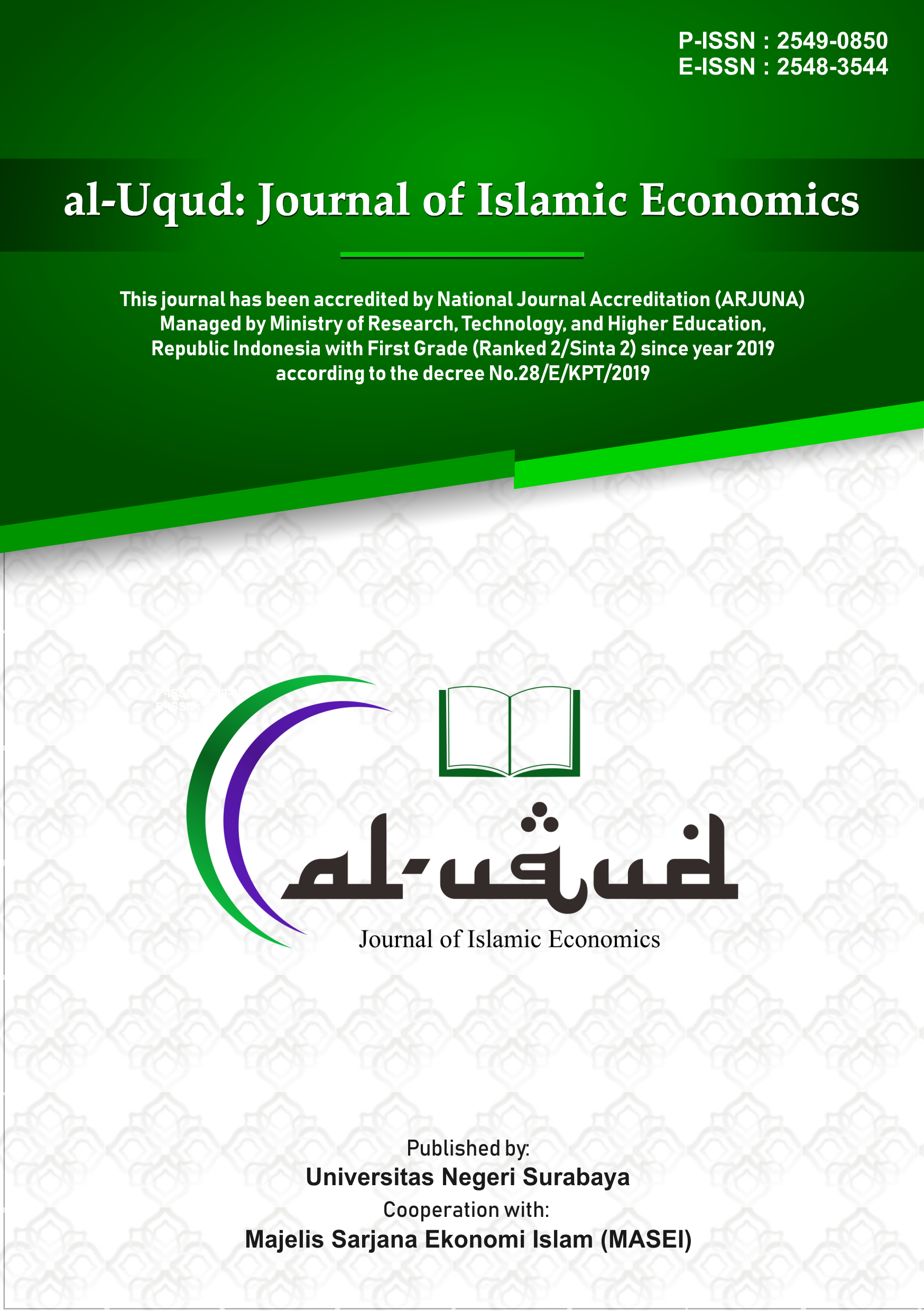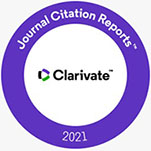The urgency of sharia division in Indonesian and Malaysian Islamic bank
DOI:
https://doi.org/10.26740/aluqud.v7n1.p82-94Keywords:
Sharia division, Sharia compliance, Islamic bankAbstract
This paper aims to investigate the significance of having a sharia division in Indonesian and Malaysian Islamic banks. This paper is a qualitative study based on a review of official documents from the Indonesian Central Bank and the Indonesian Sharia Council. Interviews with Sharia Advisers were conducted to conduct an interpretive, critical, and descriptive study of the issue. The interpretive analysis was carried out by interpreting each issued regulation, and the analysis was deepened by presenting a description of the sharia division's implementation in Malaysian Islamic banks. Efforts to analyze the results are carried out by reducing the information obtained, presenting the data and concluding. According to the research findings, there are numerous deviations in non-compliance with Sharia implementation in disbursed financing. According to the findings, Islamic banks must have a Sharia division in their organisational structure. The Sharia division ensures that Sharia bank operations follow Sharia principles, beginning with input, processing, and output. This study's theoretical implication is a study of sharia implementation by providing a sharia division in the organisational structure of Islamic banks. This is a more extensive study involving more sharia banks on their willingness and the internal awareness of the presence of the sharia division. Any country that wishes to establish sharia banks must research the presence of sharia divisions to ensure sharia compliance in their operations.
References
Ali, M. M. (2020). Shariah committee member of Affin Islamic Bank, Wawancara mendalam 30 Nopember.
BI, B. I. (2013). Surat Edaran Kepada Semua Bank Pembiayaan Rakyat Syariah di Indonesia tentang Pedoman Pelaksanaan Tugas dan Tanggung Jawab Dewan Pengawas Syariah Bank Pembiayaan Rakyat Syariah (Issue 15).
Glaser, B. G., & Strauss, A. L. (2006). The Discovery of Grounded Theory: Strategies for Qualitative Research. Aldine Transaction a Division of Transaction Publishers. https://doi.org/10.1093/sf/46.4.555
GoI, G. of I. (2008a). Undang-Undang Republik Indonesia No 21 Tahun 2008 Tentang Perbankan Syariah.
GoI, G. of I. (2008b). Undang-Undang Republik Indonesia Nomor 21 Tahun 2008 Tentang Perbankan Syariah.
Hikmah, M. (2017). Tingkat Ketertarikan Masyarakat Muslim Terhadap Bank Syariah Di Yogyakarta, Indonesia. Seminar Forum Ilmiah Keuangan Negara, 4(1), 1. http://ejournal.uin-suska.ac.id/index.php/hukumislam/article/view/2678
Hosen, M. N., Lathifah, F., & Jie, F. (2019). Perception and Expectation of Customers in Islamic Bank Perspective. Journal of Islamic Marketing, 12(1). 47-60. https://doi.org/10.1108/JIMA-12-2018-0235
Hulster, K. H., & Montes-Negret, F. (2015). Micro-Prudential Supervision : A Key FinSAC Business Line (Issue February). Financial Sector Advisory Center, World Bank Group.
Hussainey, S. E.-H. K. (2016). "Determinants of compliance with AAOIFI standards by Islamic banks", International Journal of Islamic and Middle Eastern Finance and Management, 9(1), 143-168. https://doi.org/10.1108/IMEFM-06-2015-0074
Isnawi, Z. (2016). Bank Syariah Realita Dan Harapan Masyarakat Muslim. Hukum Islam, 16(2), 171. http://ejournal.uin-suska.ac.id/index.php/hukumislam/article/view/2678
Khan, M. M. (2019). Islamic Banking and Finance: Shariah Governance in Theory and Practice. Journal of Management Research, 11(2), 16-25. https://doi.org/10.5296/jmr.v11i2.14141
Kheirabadi, M. (2004). Religions of the World Islam. Chelsea House Publisher.
Mukhibad, H., & Setiawan, D. (2022). Shariah supervisory board attributes and corporate risk-taking in Islamic banks. Cogent Business and Management, 9(1). 25-36. https://doi.org/10.1080/23311975.2022.2158607
OJK, K. D. K. (2015). Peraturan Otoritas Jasa Keuangan Nomor 24 / POJK.03/2015 Tentang Produk dan Aktivitas Bank Syariah dan Unit Usaha Syariah.
Oz, E., Ali, M. M., Khokher, Z. ur R., & Rosman, R. (2016). Shari?ah Non-Compliance Risk in the Banking Sector : Impact on Capital Adequacy Framework of Islamic Banks. In IFSB Working Paper Series (Vol. 5, Issue March).
P, A. A. N. (2018). Awareness and Perceptions About Islamic Banking in India : a Study With Special Reference To Aligarh District. International Journal of Emerging Technologies and Innovative Research, March.
Sorkhou, M. (2006). Bank profitability and risk control.pdf. Author House TM, 1663 Liberty Drive Suite 200.
Syarofi, S. (2019). Sharia Supervisory Board at BPRS Karya Mugi Sentosa Surabaya, Indepth Interview.
Usanti, T. P. (2010). Characteristic of Prudential Principle in Islamic Banking Business. Disertasi, Universitas Airlangga Surabaya.
Downloads
Published
How to Cite
Issue
Section
License
Copyright (c) 2023 The author(s)

This work is licensed under a Creative Commons Attribution 4.0 International License.
CC BY 4.0 Abstract views: 887
,
Abstract views: 887
, PDF Downloads: 860
PDF Downloads: 860








